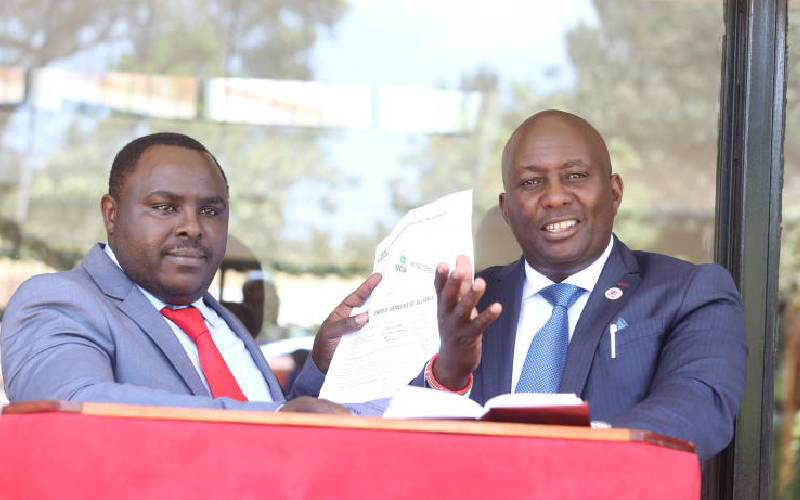
MCAs on Monday stormed the office of Kiambu Governor Kimani Wa Matangi, demanding a speedy disbursement of bursaries to them for onward transmission to needy students in their respective wards. According to them, the governor is using his office to benefit his foundation, which will disburse the funds. Their accusation is that the first-time governor has sidelined them in the plans to disburse bursaries by forming bursary committees at the ward level without consulting them.
Recently, MCAs in Meru passed a motion of impeachment against Governor Kawira Mwangaza for alleged nepotism, illegal appointments, unlawful dismissals, misleading campaigns against other leaders and gross violation of the Constitution. In the Senate, however, the ouster plans failed. These incidents continue to shed light on the power and influence of MCA. The question arises: What is the role of MCAs in our constitutional design? Since devolution was introduced, have MCAs overstepped or misinterpreted their mandate?